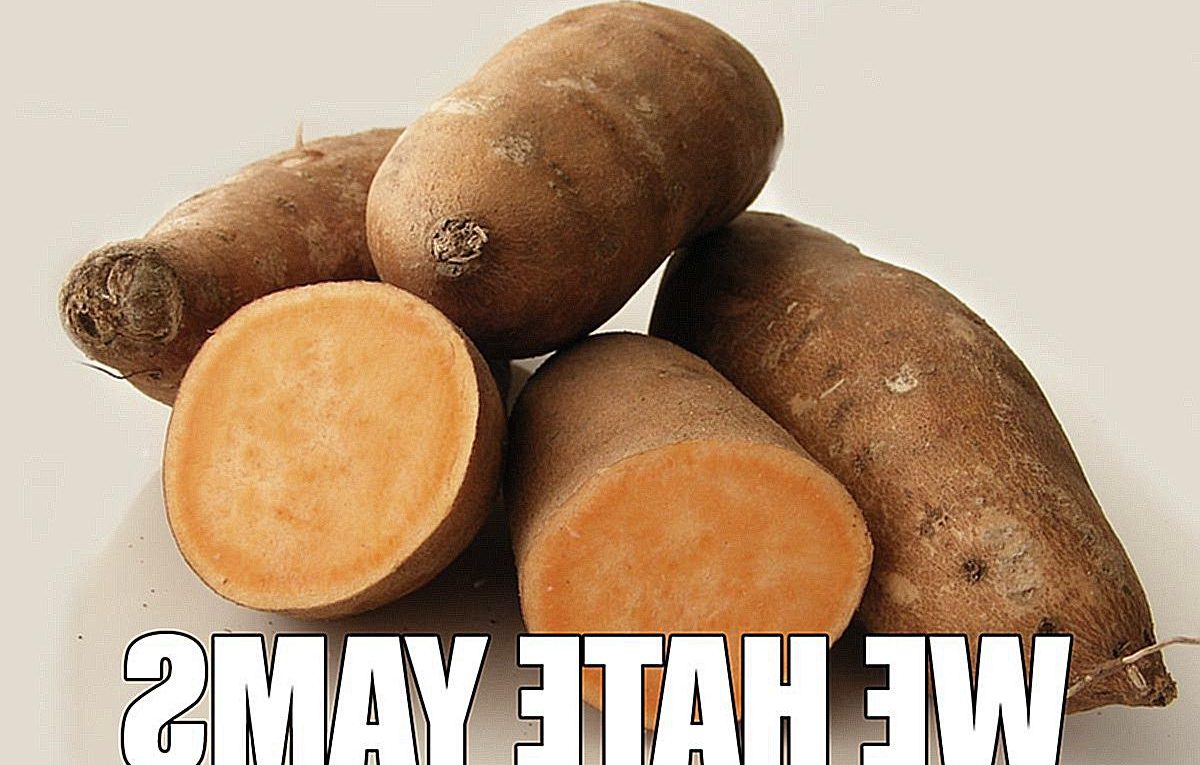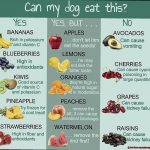Are yams toxic to dogs?
We all know the joy of spoiling our furry pals with a taste of our own culinary adventures. And let’s face it, when it comes to those vibrant and nutrient-packed yams, it’s tough to resist sharing the goodness with our pups. But hold your biscuits for a moment. Because what seems like harmless fun can quickly turn into a howling disaster.
Today, we’re sinking our teeth into the burning question that keeps pet owners up at night: Are yams toxic to dogs? Buckle up as we embark on this journey with utmost care and concern for our four-legged companions.
Sure, yams have an impressive resume when it comes to health benefits for us humans. But what about our furry friends? In this pawsome blog post, we’re digging deep into the potential toxicity of yams for dogs. We’ve got the scoop on everything you need to know so you can make informed decisions about feeding these tuberlicious treats to your fur babies.
So grab your favorite beverage, settle in, and let’s venture into the wild world of yams—their nutritional value, their potential dangers—and figure out if they’re a feast or a foe for our beloved canines. Ready? Let’s dive in.
What Are Yams and How Do They Benefit Dogs?
Contents
- 1 What Are Yams and How Do They Benefit Dogs?
- 2 The Dangers of Feeding Raw Yams to Dogs
- 3 Preparing Yams for Dogs in the Right Way
- 4 What Vitamins and Minerals Can Be Found in Yams?
- 5 Is It Safe to Feed Yams as a Treat or Part of a Balanced Diet?
- 6 Are There Any Special Considerations When Feeding Yams to French Bulldogs?
- 7 Common Symptoms of Overeating Yams in Dogs
- 8 Conclusion
What Are Yams?
Yams are starchy tuber vegetables that belong to the Dioscorea genus. They are often confused with sweet potatoes, but they are botanically different. Yams have a rough, bark-like skin and come in various colors such as white, yellow, purple, or pink.
Nutritional Benefits for French Bulldogs:
Yams are a nutritional powerhouse for both humans and dogs. They provide essential vitamins, minerals, and dietary fiber that can contribute to your French Bulldog’s overall health. Here’s how yams can benefit your furry friend:
Vitamin C Boosts Immune System:
Yams are rich in vitamin C, which acts as an antioxidant and helps boost the immune system. A strong immune system is vital for French Bulldogs to ward off illnesses and stay healthy.
Potassium for Muscle Function:
Potassium found in yams is important for maintaining proper muscle function in dogs. This mineral plays a crucial role in regulating blood pressure, making it beneficial for French Bulldogs prone to heart issues.
Manganese for Bone Development:
Yams contain manganese, which is necessary for normal bone development and metabolism in dogs. This mineral plays a crucial role in keeping your French Bulldog’s bones healthy and strong.
High Fiber Content aids Digestion:
The dietary fiber in yams aids digestion and can help regulate bowel movements in French Bulldogs. It promotes a healthy digestive system and reduces the risk of constipation or diarrhea.
Weight Management:
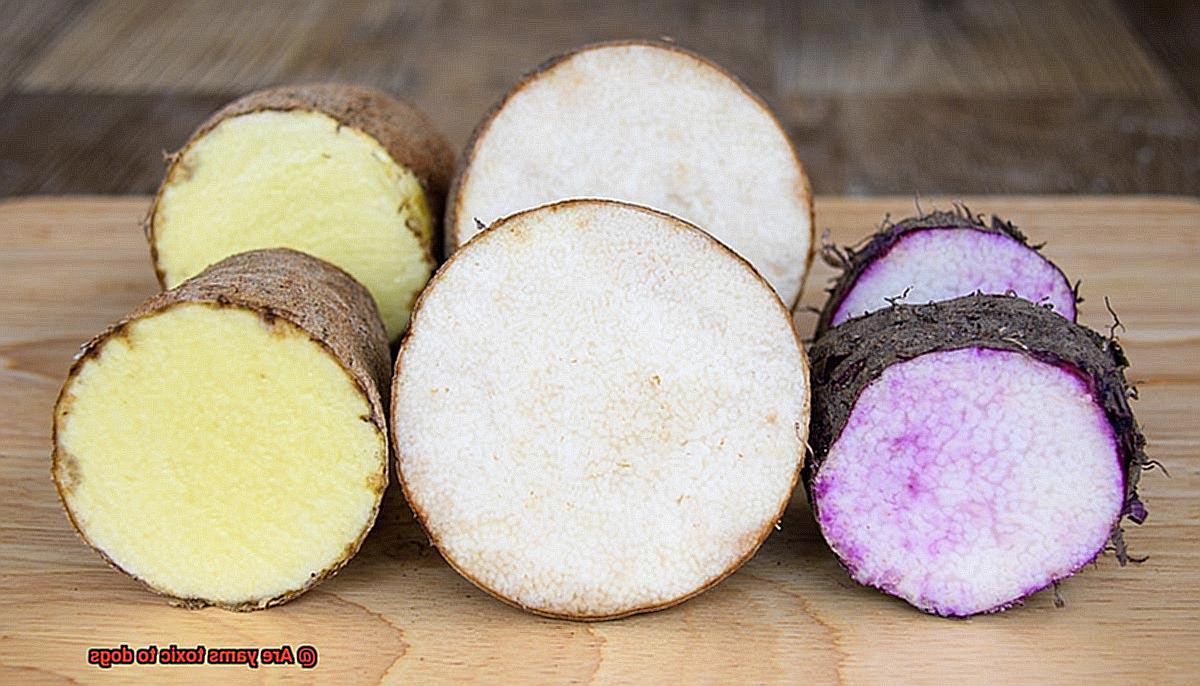
Yams have a low glycemic index, meaning they release sugar into the bloodstream slowly. This is beneficial for French Bulldogs with diabetes or those prone to obesity. The high fiber content in yams can also help your furry friend feel fuller for longer, aiding in weight management.
Preparation and Safety Tips:
While yams have numerous health benefits for French Bulldogs, it’s essential to follow these preparation and safety tips:
- Cook Thoroughly: Raw yams are difficult to digest and may cause gastrointestinal upset. Always cook yams thoroughly before feeding them to your French Bulldog.
- Remove Skin: The skin of the yam can be tough and hard to chew, so it’s best to remove it before serving it to your furry friend.
- No Seasonings or Spices: Avoid adding any seasoning or spices when cooking yams for your French Bulldog. Certain ingredients like garlic or onion can be toxic to dogs.
The Dangers of Feeding Raw Yams to Dogs
French Bulldogs are beloved pets known for their playful nature and adorable squishy faces. As responsible pet owners, it’s our duty to ensure that their dietary needs are met. While yams can be a healthy addition to a dog’s diet when prepared properly, feeding them raw can pose serious risks to our furry friends.
In this article, we’ll explore the potential dangers of feeding raw yams to French Bulldogs and why it’s best to avoid this practice.
Oxalate Compounds and Kidney Damage:
Raw yams contain oxalates, a compound that can be harmful to dogs when ingested in large amounts. Oxalates can lead to kidney damage and the formation of urinary stones, which can cause discomfort, pain, and even require surgical intervention. It’s crucial to cook yams thoroughly to reduce the oxalate content and minimize the risk to your French Bulldog’s kidneys.
Choking and Gastrointestinal Obstruction:
Raw yams are hard and can be difficult for dogs, especially those with smaller mouths like French Bulldogs, to chew and swallow properly. This increases the risk of choking or gastrointestinal obstruction. These blockages can be life-threatening and may require immediate medical attention. To prevent these dangers, it’s best to cook yams until they are soft and easily digestible.
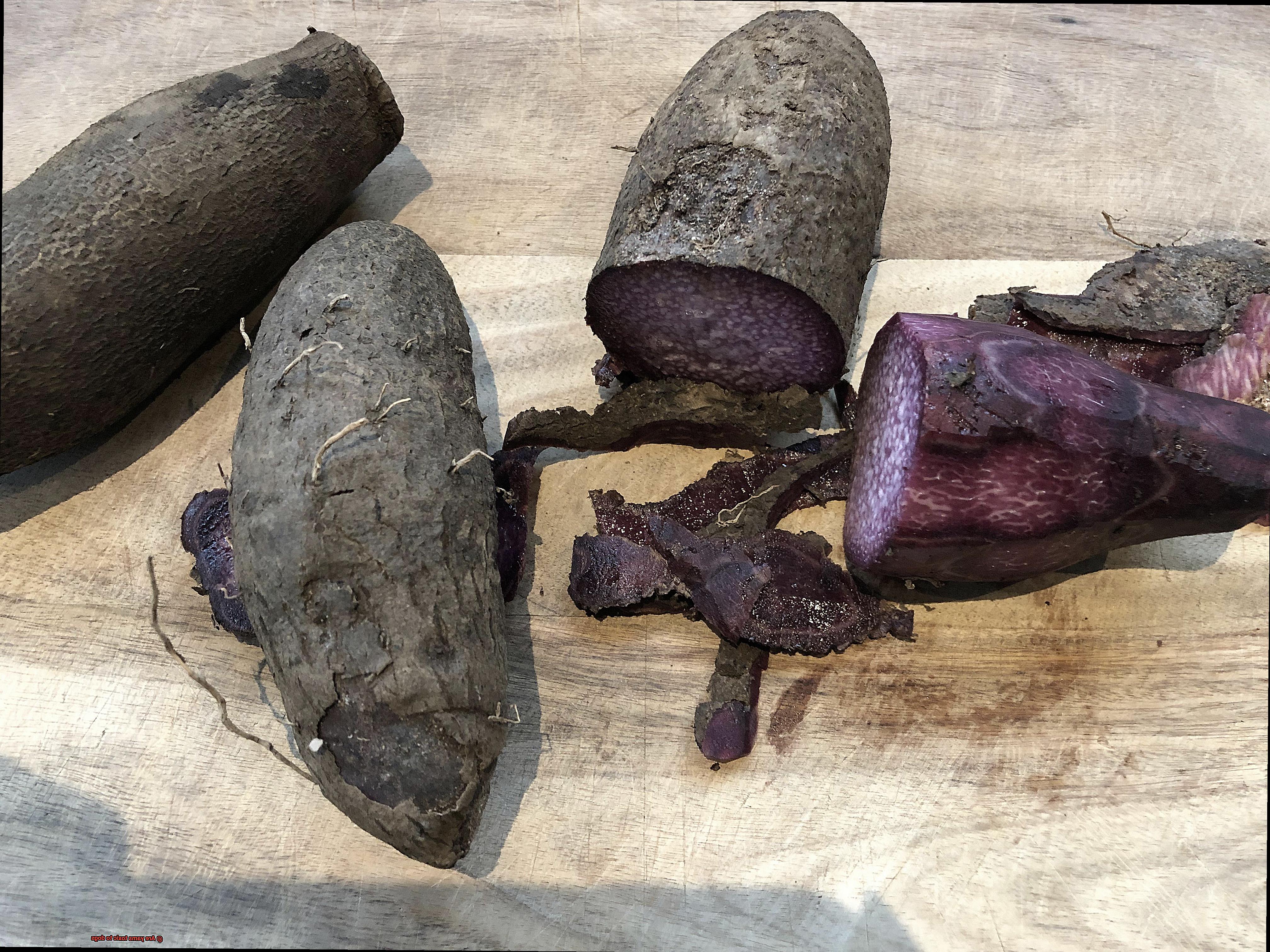
High Sugar Content:
Yams have a naturally high sugar content, which can be problematic for dogs, particularly those with diabetes or weight issues. Consuming excessive amounts of sugar can lead to weight gain, dental problems, and an increased risk of developing diabetes. Therefore, it’s important to moderate the amount of cooked yams you offer your French Bulldog and consult with your vet about their specific dietary needs.
Digestive Upset:
Some dogs may have difficulty digesting the starches found in yams, leading to digestive upset such as diarrhea or vomiting. These symptoms can cause discomfort and dehydration in your French Bulldog. To avoid these issues, it’s best to introduce yams gradually into their diet and monitor their response. If any digestive issues arise, consult with your veterinarian for guidance.
Preparing Yams for Dogs in the Right Way
French Bulldogs are adorable little bundles of joy, but when it comes to their diet, it’s important to be mindful of what we feed them. Yams can be a healthy and tasty addition to their meals, but proper preparation is key to ensure their safety and maximize the nutritional benefits. In this article, we’ll guide you through the steps of safely preparing yams for your French Bulldog, so they can enjoy this nutritious treat without any worries.
Step 1: Thoroughly Wash the Yams
Before cooking the yams, give them a good scrub under cold water to remove any dirt or residue. This step is crucial to ensure that your furry friend doesn’t ingest any harmful substances.
Step 2: Cook the Yams
Next, it’s time to cook those yams until they’re soft and easily mashable. You have three options: boiling, baking, or steaming. Choose the method that suits you best. Remember, no seasonings or spices are needed – plain yams are perfect for your pooch.
Step 3: Allow the Yams to Cool
Once cooked, let the yams cool down before serving them to your French Bulldog. This will prevent any burns or discomfort in their sensitive mouths. While waiting for them to cool, resist the temptation to snatch a bite – these treats are for your furry friend.
Step 4: Cut into Bite-Sized Pieces
To make it easier for your French Bulldog to eat and digest the yams, cut them into small, bite-sized pieces. This will also help prevent choking hazards and ensure a safe snacking experience.
Step 5: Introduce Gradually and Observe
As with any new food, it’s important to introduce yams gradually into your French Bulldog’s diet. Start with small amounts and monitor their reaction. Some dogs may have allergies or sensitivities, so keep an eye out for any signs of discomfort or adverse reactions.
Step 6: Incorporate into Meals
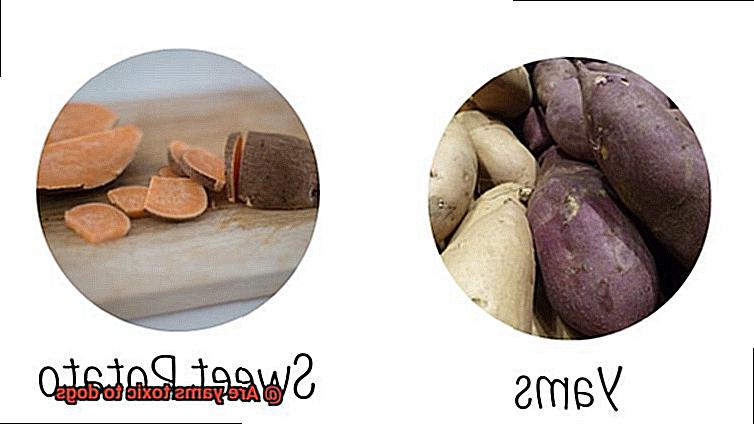
Yams can be served as a standalone treat or incorporated into your French Bulldog’s regular meals. You can mash them and mix them with their regular food or use them as a tasty topping. Just remember, yams should only make up a small portion of their overall diet – variety is key.
Step 7: Consult with Your Veterinarian
Before introducing yams or any new food into your French Bulldog’s diet, it’s always wise to consult with your veterinarian. They can provide personalized advice based on your dog’s specific needs and health conditions.
What Vitamins and Minerals Can Be Found in Yams?
Yams are not only delicious but also highly nutritious for humans. They are packed with a variety of vitamins and minerals that offer numerous health benefits. Let’s take a closer look at the vitamins and minerals found in yams:
Vitamins in Yams:
- Vitamin C: Yams are a rich source of vitamin C, a powerful antioxidant that plays a crucial role in boosting the immune system and promoting overall health. Vitamin C also aids in collagen production, which is important for maintaining healthy skin, bones, and blood vessels.
- Vitamin B6: Yams contain significant amounts of vitamin B6, which is necessary for proper brain development and function. It helps in the production of neurotransmitters, which are vital for sending signals between nerve cells. Additionally, vitamin B6 helps regulate mood, sleep patterns, and appetite.
Minerals in Yams:
- Potassium: Yams are particularly abundant in potassium, an essential mineral for maintaining healthy heart function and regulating blood pressure levels. Potassium also plays a role in muscle contraction and nerve signaling, making it crucial for proper bodily function.
- Manganese: Yams contain manganese, a trace mineral that acts as a cofactor for various enzymes involved in metabolism and antioxidant defense. It also supports bone health and helps regulate blood sugar levels.
Other Nutrients in Yams:
Dietary Fiber: Yams are a good source of dietary fiber. Fiber aids in digestion and helps promote a feeling of fullness, making it beneficial for weight management. Moreover, it supports bowel regularity and can contribute to a healthy gut microbiome.
Including yams in your diet can provide you with these essential vitamins and minerals, promoting overall health and well-being.
Is It Safe to Feed Yams as a Treat or Part of a Balanced Diet?
French Bulldogs are beloved companions known for their playful and affectionate nature. As pet owners, we always want to provide them with the best care and nutrition possible. One question that often comes up is whether it is safe to feed yams to French Bulldogs as a treat or part of a balanced diet. In this article, we will explore the safety considerations of feeding yams to French Bulldogs and provide expert insights based on research and experience.
Nutritional Benefits of Yams for French Bulldogs
Yams are packed with essential nutrients that can provide various health benefits to French Bulldogs. They are rich in vitamins A and C, which support immune function and promote healthy skin and coat. Yams also contain fiber, which aids in digestion and helps maintain optimal weight. Additionally, yams are a good source of potassium, which supports heart health and proper muscle function.
Considerations for Feeding Yams to French Bulldogs
While yams are generally safe for French Bulldogs to consume, there are some important considerations to keep in mind:
- Preparation: It is crucial to cook yams thoroughly before feeding them to French Bulldogs. Raw yams can be difficult for dogs to digest and may pose a choking hazard.
- Seasonings and Additives: Avoid using seasonings or additives like salt, butter, or marshmallows when preparing yams for French Bulldogs. These can be harmful to dogs and should be avoided.
- Portion Size: Yams should only be given to French Bulldogs in small amounts as a treat or part of a balanced diet. Feeding too many yams can lead to digestive upset or weight gain in dogs.
- Monitoring Your Dog’s Reaction: While most French Bulldogs tolerate yams well, some individuals may have an allergic reaction or digestive sensitivity to this food. If you notice any adverse reactions such as vomiting, diarrhea, or changes in behavior after feeding yams, consult with your veterinarian.
- Overall Diet Balance: Yams should not make up a significant portion of a French Bulldog’s daily food intake. They should be offered as an occasional treat or added in small amounts as a supplement to a nutritionally complete and balanced dog food diet.
Are There Any Special Considerations When Feeding Yams to French Bulldogs?
French Bulldogs have a unique dietary requirement due to their sensitive digestive system, so it is important to consider any special considerations when feeding them yams. Yams are generally considered safe for dogs to consume, including French Bulldogs, but there are a few factors to keep in mind. Let’s explore these considerations together.
- Cook Thoroughly: Raw yams can be difficult for dogs to digest and may cause gastrointestinal upset. To ensure the safety and digestibility of yams for your French Bulldog, it is crucial to cook them thoroughly. Boiling or baking the yams until they are soft and mushy is recommended.
- Avoid Seasonings: While you may be tempted to add some spices or seasonings to enhance the flavor of the yams, it is important to resist this urge when feeding them to your French Bulldog. Spices and additives that are harmless to humans can potentially be harmful to dogs. Stick to plain, unseasoned yams to eliminate any risks.
- Moderation is Key: Yams can be a nutritious addition to a dog’s diet, as they are rich in fiber, vitamins, and minerals. However, moderation is key. French Bulldogs have a tendency to gain weight easily, so excessive consumption of yams can lead to an upset stomach or even weight gain. Treat yams as an occasional treat rather than a staple food item.
- Consider Health Conditions and Allergies: It is important to consider any existing health conditions or allergies your French Bulldog may have before introducing yams into their diet. If your dog has any known allergies or sensitivities, it is best to consult with your veterinarian before giving them yams.
- Monitor for Digestive Upset: As with any new food introduction, it is crucial to monitor your French Bulldog after feeding them yams for any signs of digestive upset or adverse reactions. Keep an eye out for symptoms such as vomiting, diarrhea, or changes in appetite or behavior. If you notice any unusual symptoms or behaviors, it is recommended to contact your veterinarian for guidance.
In conclusion, yams can be a safe and nutritious addition to your French Bulldog’s diet when fed in moderation and with proper preparation. By following these special considerations and monitoring your dog’s response, you can ensure that they enjoy the benefits of yams without any negative effects on their health. Remember, always prioritize your French Bulldog’s well-being and consult with your veterinarian whenever in doubt.
Common Symptoms of Overeating Yams in Dogs
Just like a French Bulldog strutting its stuff on the dance floor, yams can be a delightful treat for your furry friend. However, it’s important to be aware of the potential risks associated with overindulging in this tantalizing tuber. While yams are generally safe for dogs to consume, excessive consumption can lead to some unpleasant symptoms and health issues. So, let’s take a closer look at the common symptoms of overeating yams in dogs.
Gastrointestinal Distress: A Dance with Diarrhea and Vomiting
One of the telltale signs that your French Bulldog may have gone overboard on the yams is gastrointestinal distress. This can include bouts of diarrhea, episodes of vomiting, and an overall upset stomach. Yams are loaded with fiber, which can be a bit challenging for some dogs to digest in large quantities. So, if your pup is experiencing these tummy troubles after feasting on yams, it’s time to hit the pause button and reassess their portion sizes.
Bloating and Gas: An Unwanted Tango
Picture your French Bulldog doing the salsa with an inflated belly – not a pretty sight, right? Well, overeating yams can lead to bloating and excessive gas production in dogs. The high fiber content of yams can cause discomfort and leave your pup feeling like they’ve had one too many spins on the dance floor. So, keep an eye out for signs of bloating or excessive gas, and adjust their yam intake accordingly.
Pancreatitis: The Party Pooper
Unfortunately, overindulging in yams can lead to pancreatitis in dogs. This condition involves inflammation of the pancreas and can cause symptoms such as abdominal pain, loss of appetite, and lethargy. Pancreatitis is no joke and requires immediate veterinary attention. So, if your French Bulldog is showing any signs of this party pooper, don’t hesitate to contact your vet for a proper diagnosis and treatment.
Weight Gain: The Dance Partner You Don’t Want
Nobody wants their French Bulldog to have a dance partner named “obesity.” Yams are a starchy vegetable and can contribute to calorie intake if consumed in excess. This can lead to weight gain and all the health problems that come with it. So, be mindful of your pup’s yam intake and ensure they’re not overdoing it on the dance floor of indulgence.
Allergic Reactions: When the Music Stops
While yams are generally safe for most dogs, some pups may have allergies or sensitivities to this vegetable. If your French Bulldog has a known allergy or sensitivity, overeating yams can trigger allergic reactions like itching, skin rashes, or gastrointestinal issues. So, if your pup starts scratching like there’s no tomorrow or develops an upset tummy after yam consumption, it’s time to hit the brakes and seek veterinary advice.
3staJxfuZrM” >
Conclusion
In conclusion, it is important to understand that yams can be toxic to dogs. While they may seem like a harmless and nutritious treat, certain varieties of yams contain compounds that can be harmful to our furry friends. These compounds, known as oxalates, can cause digestive issues and even kidney damage in dogs.
As responsible pet owners, we must prioritize the health and well-being of our canine companions. This means being aware of the potential dangers that certain foods can pose to them. While yams are safe for human consumption and offer numerous health benefits, they should be avoided when it comes to feeding our dogs.
Instead of sharing your plate with your pup, opt for dog-friendly treats that are specifically formulated for their dietary needs. There are plenty of delicious alternatives available that will satisfy their taste buds without putting their health at risk.
Remember, when it comes to feeding our dogs, it’s always better to err on the side of caution. By avoiding potentially toxic foods like yams, we can ensure that our furry friends stay happy and healthy for years to come.
